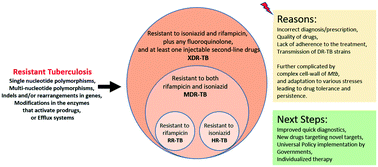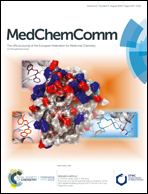Drug-resistance in Mycobacterium tuberculosis: where we stand
Abstract
Tuberculosis (TB), an infectious disease caused by the bacterium Mycobacterium tuberculosis (Mtb), has burdened vulnerable populations in modern day societies for decades. Recently, this global health threat has been heightened by the emergence and propagation of multi drug-resistant (MDR) and extensively drug-resistant (XDR) strains of Mtb that are resistant to current treatment regimens. The End-TB strategy, launched by the World Health Organization (WHO), aims to reduce TB-related deaths by 90%. This program encourages universal access to drug susceptibility testing, which is not widely available owing to the lack of laboratory capacity or resources in certain under-resourced areas. Clinical assays are further complicated by the slow growth of Mtb, resulting in the long turn-around time of tests which severely limits their application in guiding a patient's treatment regimen. This review provides a comprehensive overview of current TB treatments, mechanisms of resistance to anti-tubercular drugs and their diagnosis and the current pipeline of drugs targeting drug-resistant TB (DR-TB) with particular attention paid to ways in which drug-resistance is combated.

- This article is part of the themed collection: Antimicrobial Resistance


 Please wait while we load your content...
Please wait while we load your content...